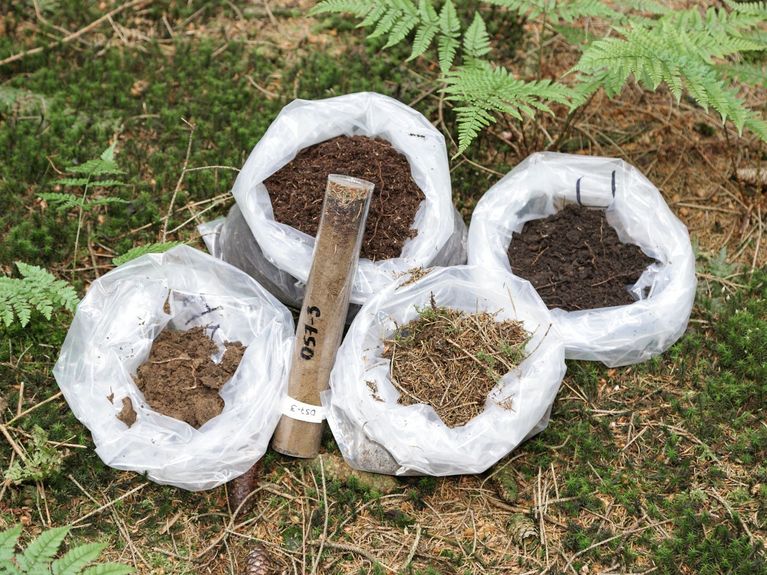
Challenge #87
Better soils for environmental and climate protection.
Healthy soils store immense amounts of carbon and serve as important reservoirs for water and nutrients. We are investigating how soils can continue to perform these important tasks optimally in the future.
Participating centers
Soils play a key role in the Earth’s climate balance because they store large amounts of carbon. In fact, there is more carbon bound in soils than there is in the atmosphere and all vegetation on Earth combined. But degraded or mismanaged soils can also become sources of greenhouse gases because then, they release more carbon than they store.
In the interests of climate protection, this must be prevented as far as possible. Therefore, at Forschungszentrum Jülich, we are developing strategies to manage soils better and more sustainably in the future.
The amount of carbon stored in the soil can be increased especially effectively by introducing more organic material into it than is decomposed. This includes, for example, incorporating manure, compost, or plant charcoal into the soil. Increasing plant growth is also helpful. The more greenery that grows on the soils, the better its rooting and therefore carbon storage will be.
Yet soils also play a crucial role as water reservoirs and buffers and thus influence the interactions between the subsurface and the atmosphere. To help farmers and hobby gardeners decide whether and how much to irrigate their soils during a drought, our researchers have developed simulation models and tools like the Water Monitor. This tool can also predict potential flooding.
For sustainable, climate-compatible agriculture, we also study the interactions between plants, soil, and microorganisms and develop recommendations on when and how soils should be managed and fertilized. This approach ensures that plants make better use of nutrients while maintaining or even increasing their productivity and quality, at the same time reducing environmental pollution and greenhouse gas emissions.
(Photo: Forschungszentrum Jülich)